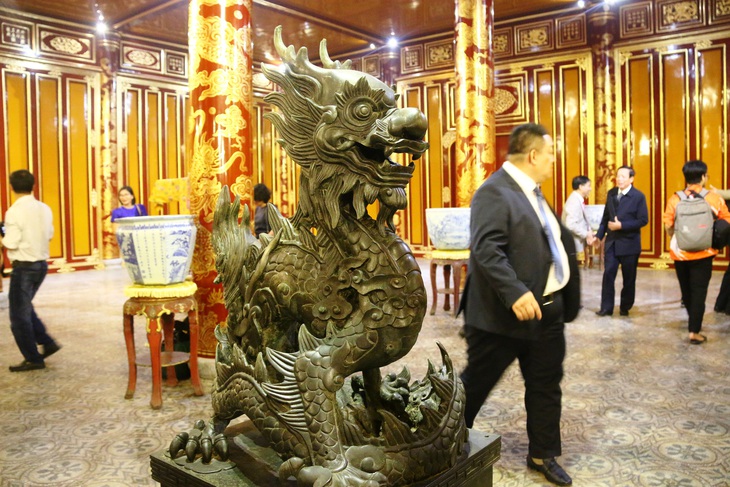
The bronze dragon statue of the Nguyen Dynasty has just been recognized as a national treasure - Photo: NHAT LINH
Deputy Minister of Culture, Sports and Tourism Hoang Dao Cuong signed Decision 1000 promulgating the code of professional conduct for people working in cultural heritage. The code consists of 3 chapters with 10 articles.
Notably, the rules for people working in the museum sector; the relic sector; the intangible cultural heritage sector; and the documentary and informational heritage sector are clearly defined.
Prohibitions for museum and relic staff
For those working in the museum sector , it is necessary to comply with the provisions of the law on cultural heritage, other relevant legal provisions and internal regulations and rules of each museum.
Understand and respect the value of cultural heritage, not only in preservation but also in imparting knowledge andeducation about cultural heritage.
Have a professional, polite, respectful and thoughtful attitude when interacting with visitors, partners and colleagues.
Ensure that information provided to visitors about artifacts, artifact collections or historical or cultural events is accurate and truthful.
Ensure that the preservation of artifacts and collections of artifacts is carried out carefully and effectively to protect the historical, cultural and scientific values of cultural heritage.
Responsible for keeping confidential information related to artifacts and collections of artifacts when assigned to manage according to regulations; not allowed to publish or transfer to any other organization or individual without permission from the competent authority.
No discrimination on the basis of gender, ethnicity, race, religion, nationality, social status, financial ability, age between museum colleagues or museum visitors.
Do not take advantage of the museum's professional activities to cause disunity among related ethnic groups and communities.
Not to broker, directly or indirectly participate in the trading, transporting, or supporting the illegal transportation of relics, antiquities, national treasures, and natural heritage.
Do not buy, sell/collect/trade/exchange relics, antiques, national treasures, or documentary heritage of illegal origin.
Do not take advantage of the task of collecting artifacts to purchase or advise other organizations or individuals to purchase or sell artifacts subject to public museum collections or disclose information related to the purchase or sale of artifacts without written consent from a competent authority.
Do not violate the interests of the museum in personal professional activities; do not take advantage of museum activities for personal gain or take advantage of the profession at the museum to support friends and relatives for personal gain.
No gifts, loans or other personal benefits may be accepted in connection with museum work.
For those working in the field of relics: Always be aware and responsible for implementing measures to protect relics; do not carry out acts that risk affecting the original elements that make up the relics; do not propagate or disseminate false information about events, historical figures associated with relics, the meaning and value of relics, activities to protect and promote the value of relics.
Ensure accurate, scientific, careful and thorough research of decisions related to management, protection and promotion of relic values based on reliable information sources and consistent with the relic's practices before implementation.
Do not take advantage of your name, position, or authority to seek personal gain in activities related to the management, protection, and promotion of relic values.
It is not allowed to preserve, repair or restore historical - cultural relics and scenic spots without the approval of the competent authority.
It is not allowed to dig or search for relics or antiquities in protected areas of relics and archaeological planning sites such as residential sites, burial sites, toolmaking workshops, ramparts, areas with underwater cultural heritage, etc. and other archaeological sites and areas; protect archaeological excavation sites and areas.
The integrity and authenticity of documentary heritage must not be violated.
For those working in the field of intangible cultural heritage: Ensure proper implementation of regulations and principles in the management, protection and promotion of intangible cultural heritage values.
Do not take advantage of activities to protect and promote intangible cultural heritage to go against the rights of cultural creation, cultural practice and cultural enjoyment of the heritage subject community...
For the field of documentary heritage and information: Ensure no alteration and maximum preservation of original information in the restoration and preservation of documentary heritage.
Responsible for protecting and promoting the value of documentary heritage, with coordination between documentary heritage workers of domestic, regional and international agencies and units.
Do not violate the integrity and authenticity of documentary heritage; do not illegally access the national database on cultural heritage...
Source: https://tuoitre.vn/cam-can-bo-bao-tang-moi-gioi-suu-tam-kinh-doanh-trao-doi-di-vat-co-vat-bao-vat-quoc-gia-20250412172527269.htm


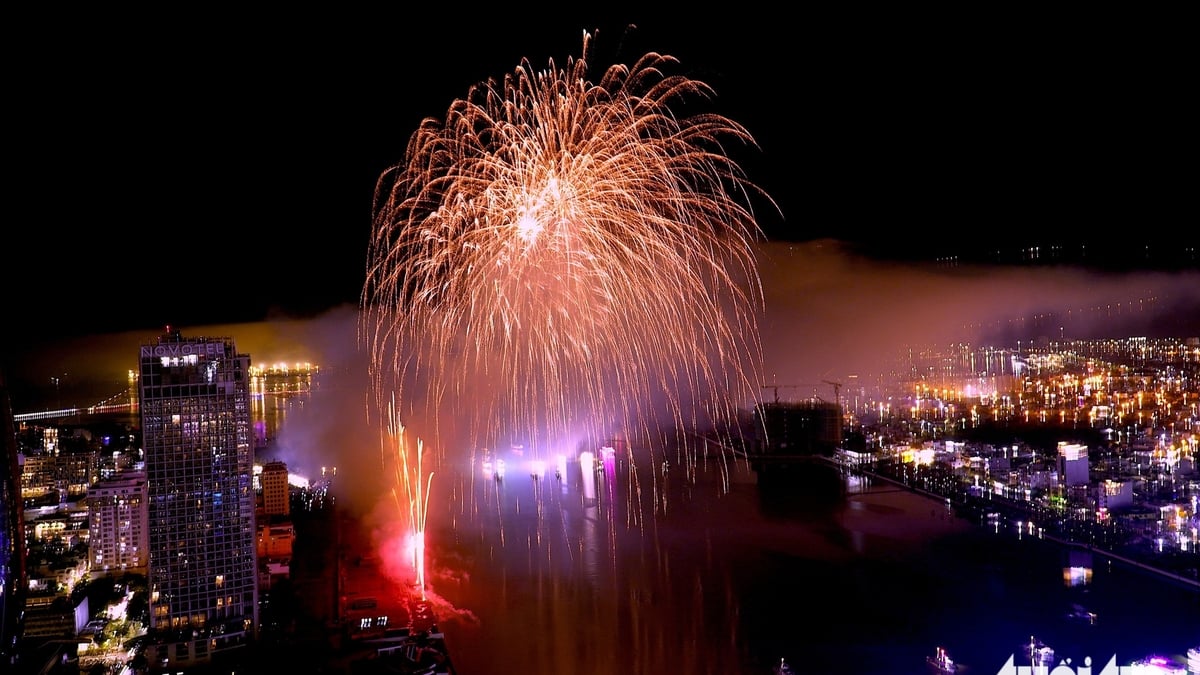

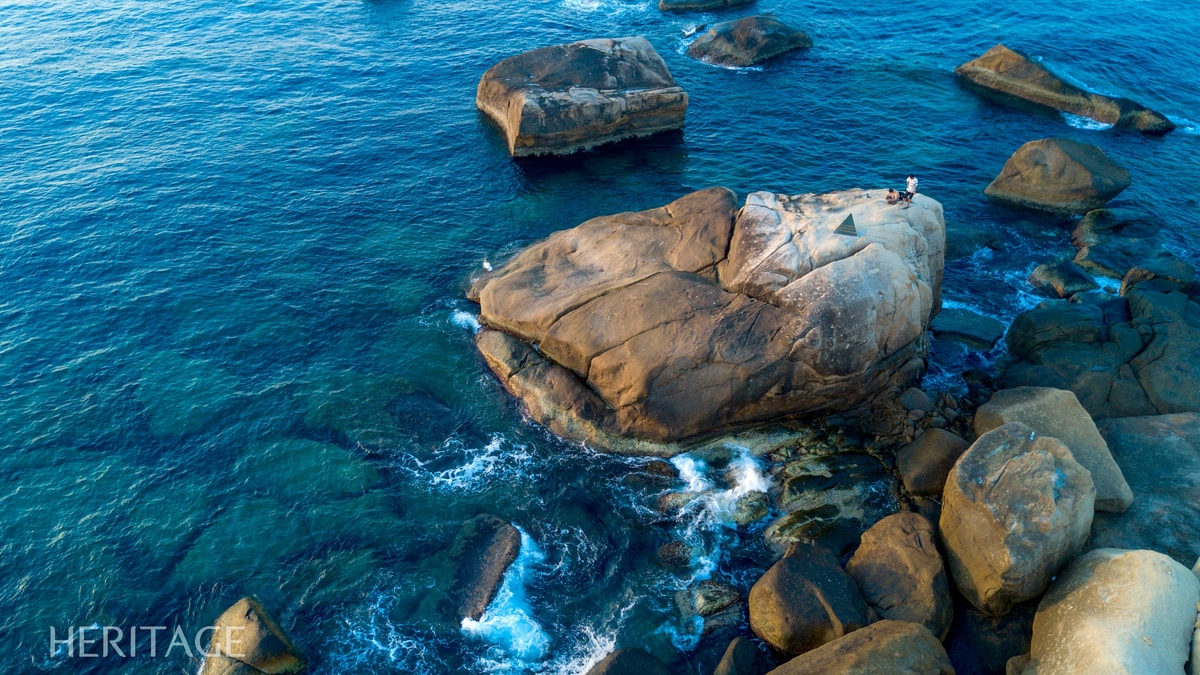

![[Photo] Crane falls on container truck and car at traffic construction site](https://vphoto.vietnam.vn/thumb/1200x675/vietnam/resource/IMAGE/2025/5/31/a8d3ae08da324cfe8ee406174c0eacc4)
![[Photo] Prime Minister Pham Minh Chinh chairs a Dialogue with businesses and business associations](https://vphoto.vietnam.vn/thumb/1200x675/vietnam/resource/IMAGE/2025/5/31/b606d6f6ff584fa28af9f353c91bf15d)
![[Photo] Warm cultural exchange program between Vietnamese and Chinese women and children](https://vphoto.vietnam.vn/thumb/402x226/vietnam/resource/IMAGE/2025/5/31/d1a2416767494e1e8af631b8bb8cb16f)

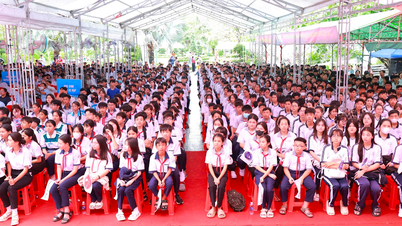

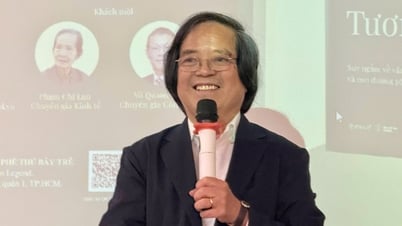
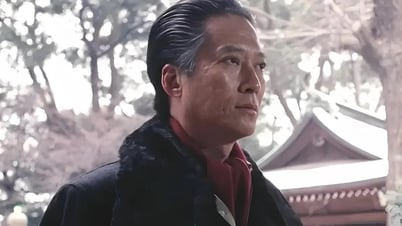

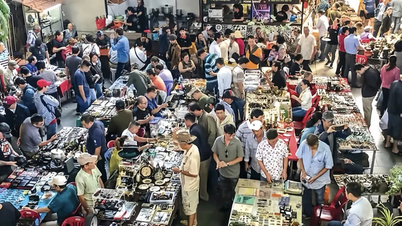

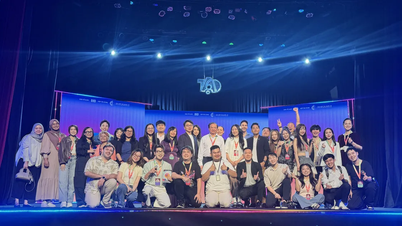







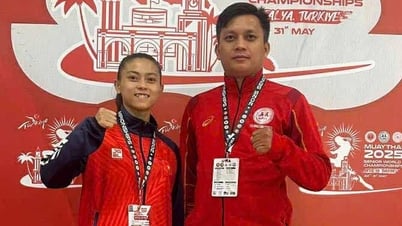


![[Photo] Emotional and proud flag-raising ceremony and military review on Truong Sa island](https://vphoto.vietnam.vn/thumb/1200x675/vietnam/resource/IMAGE/2025/5/31/9b52525fce6f433083cd0a5bfee59f49)
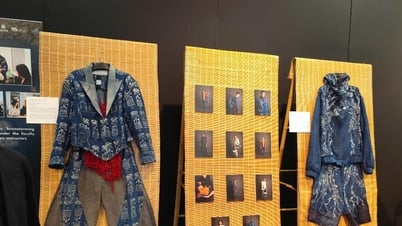


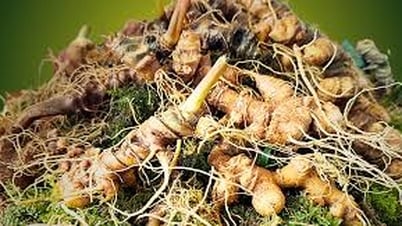













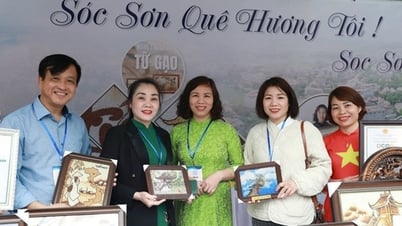











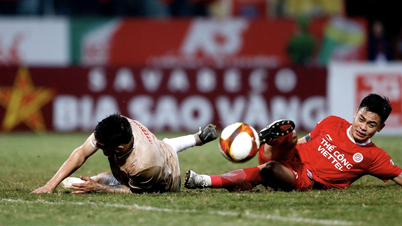

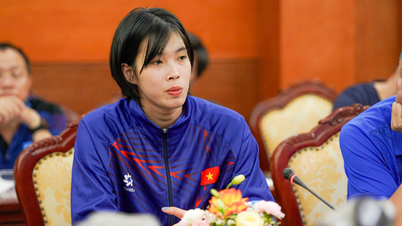





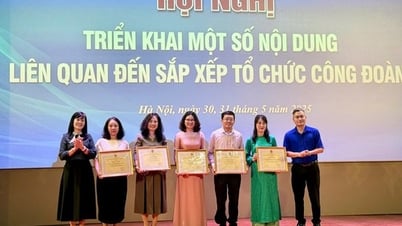
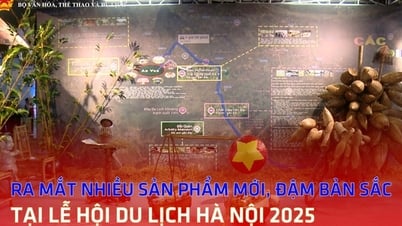
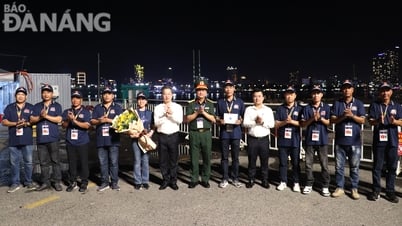

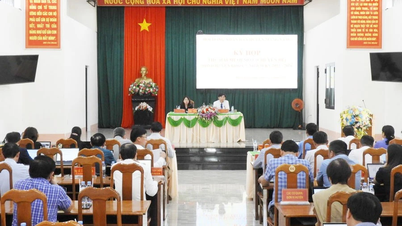

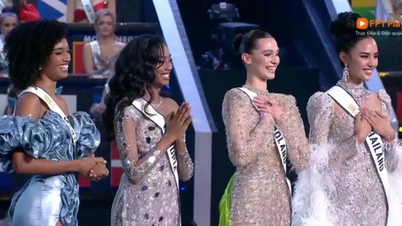

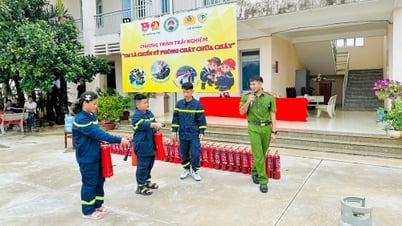

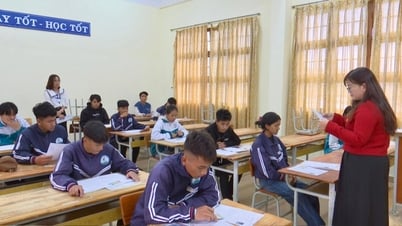











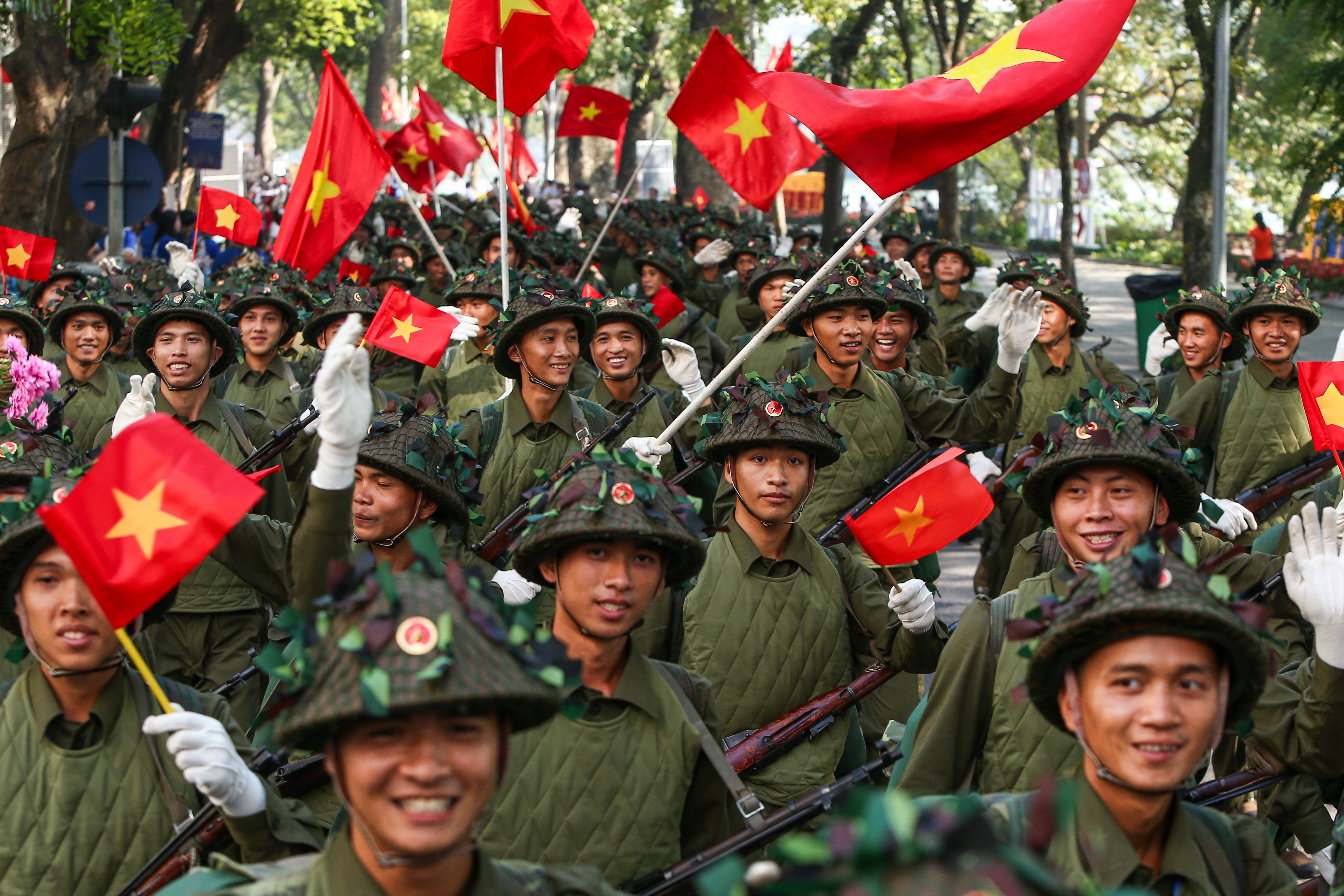



Comment (0)